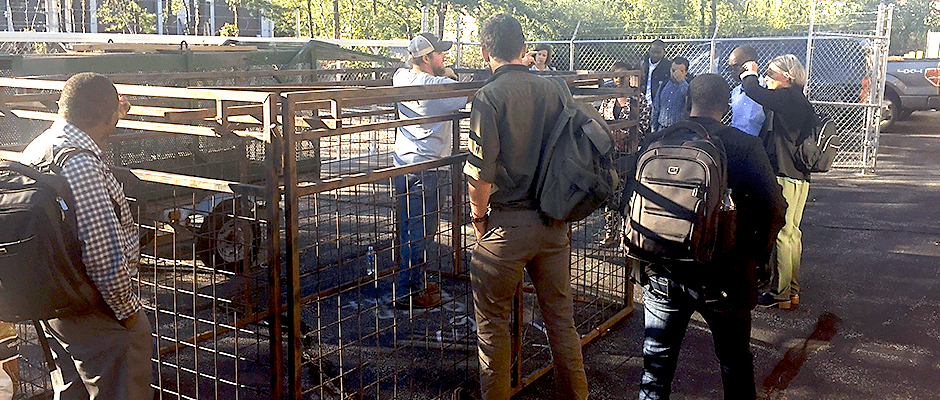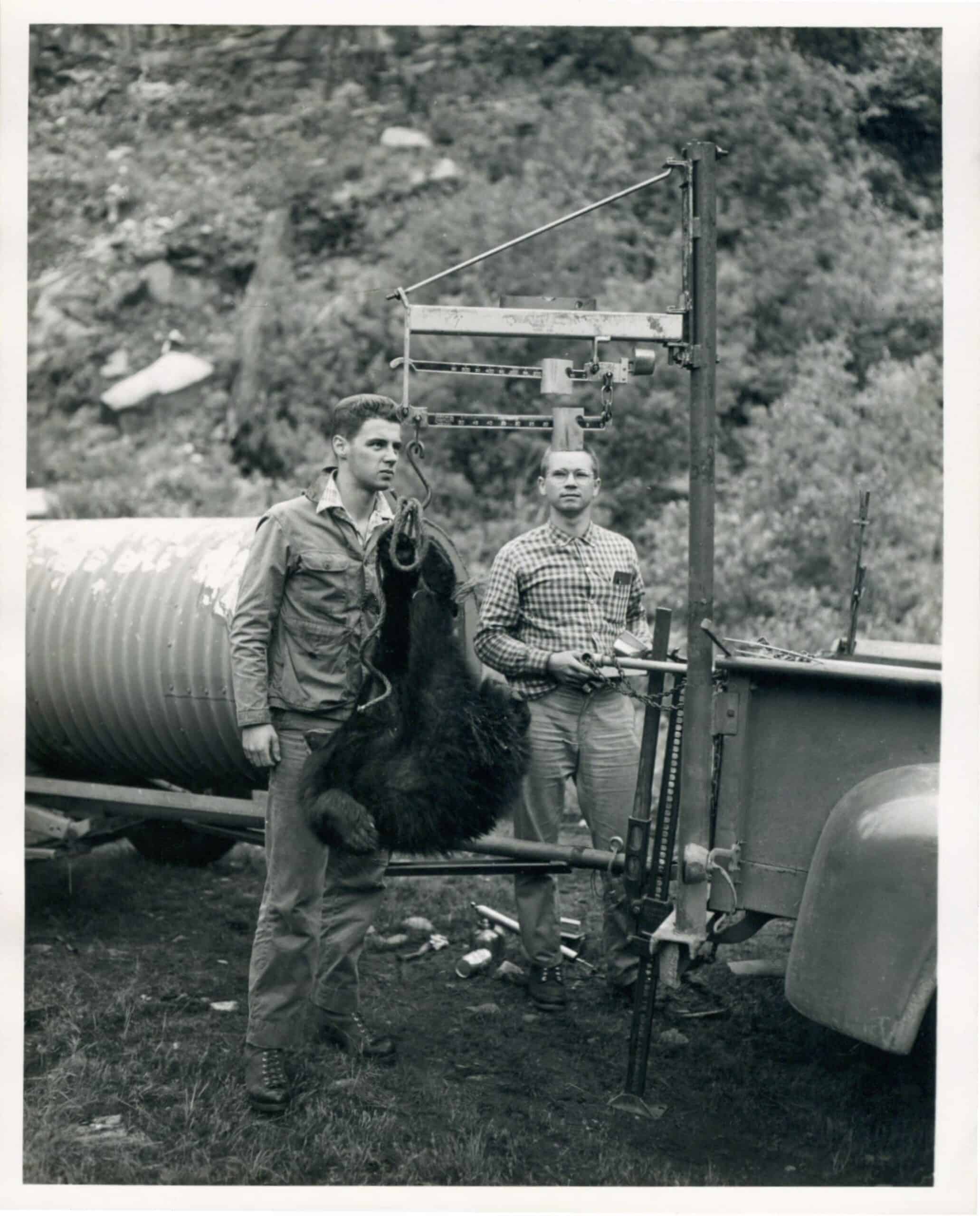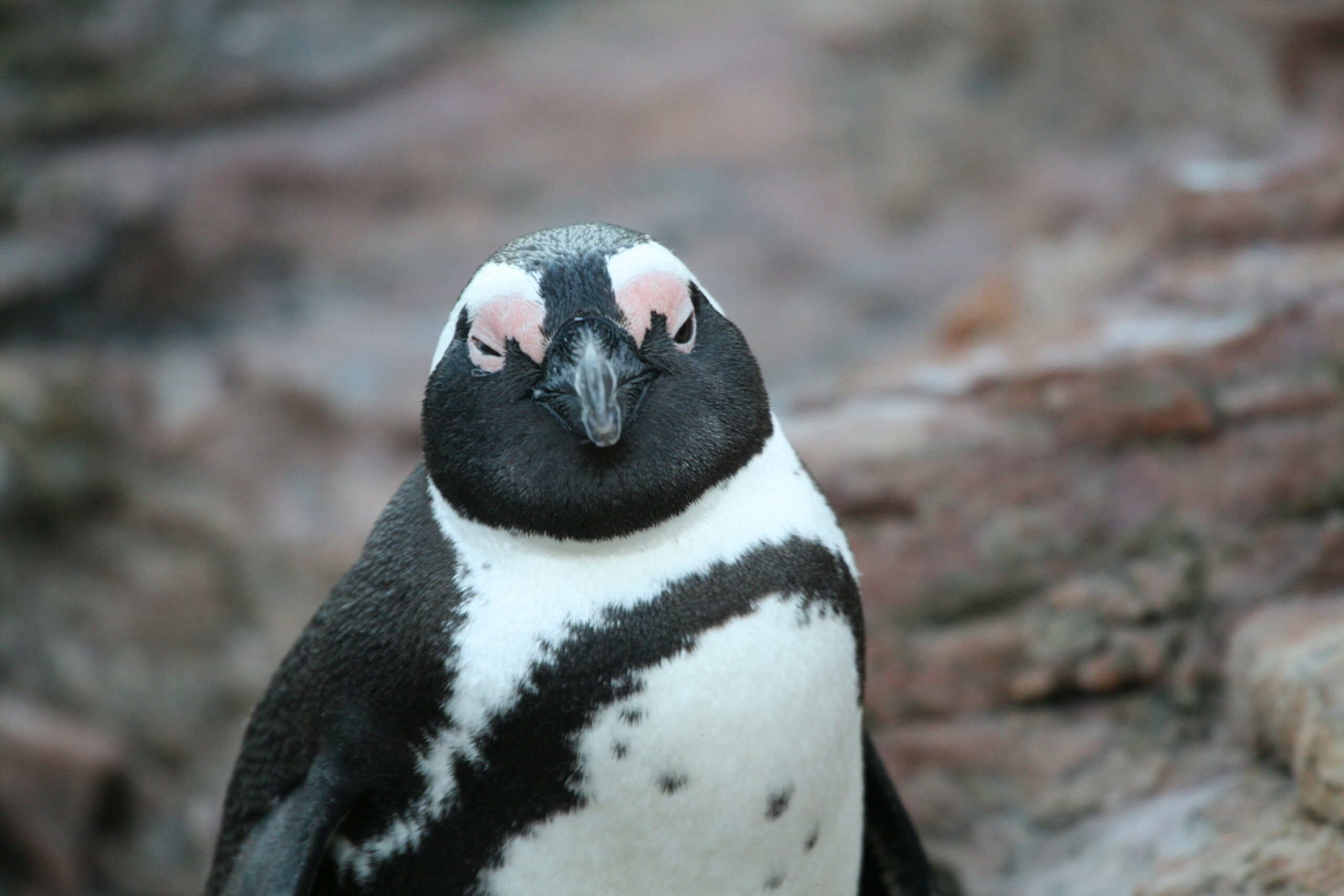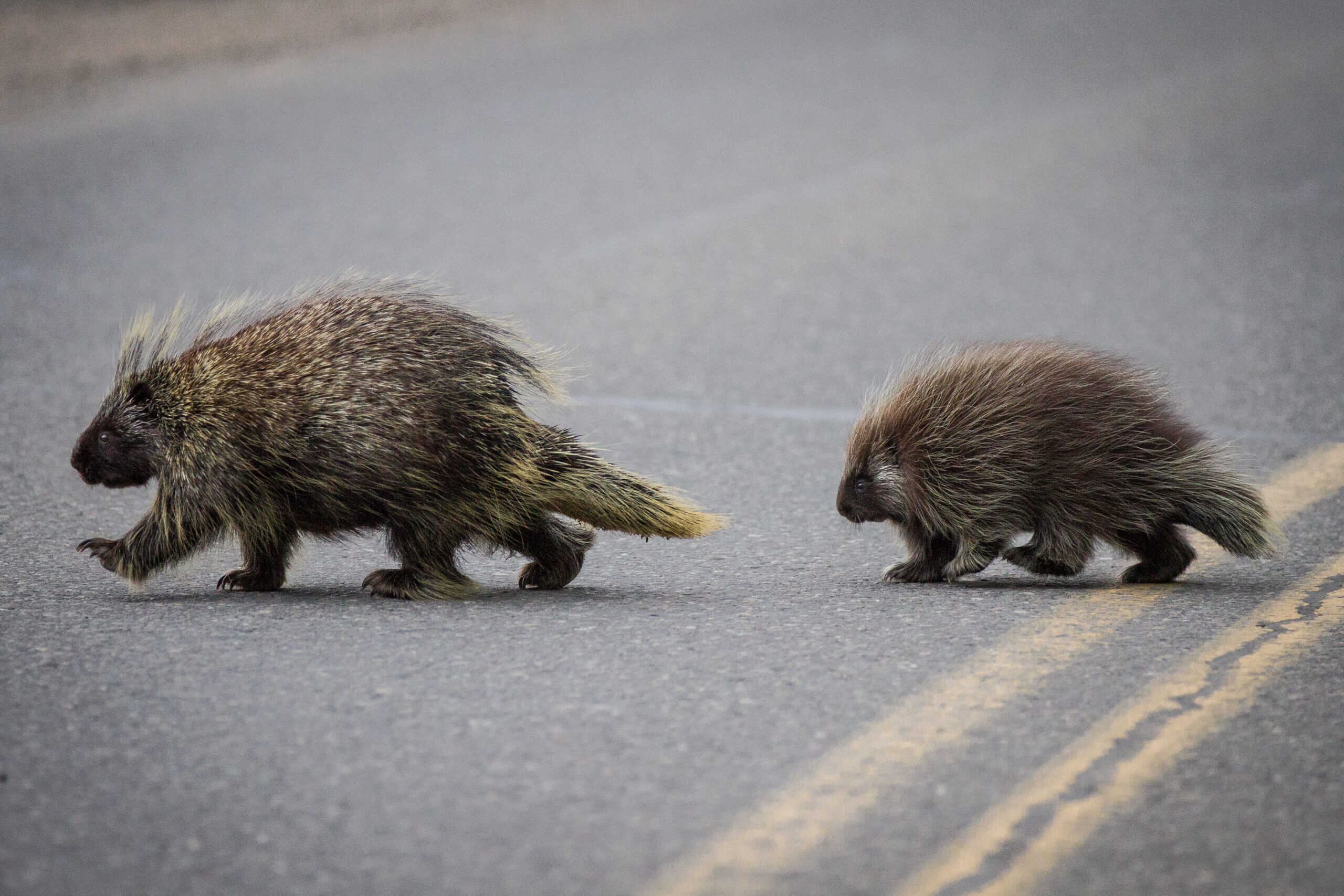Share this article
New Hampshire hosts African wildlifers on US State Dept. tour
At the request of the World Affairs Council of New Hampshire, USDA Wildlife Services (WS) in New Hampshire hosted a delegation of wildlife professionals from six African countries September 28th. Seven visitors and their interpreters, came to WS’ Concord office for a two-hour presentation and workshop provided by WS staff and our partner agency, the New Hampshire Fish & Game Department. This collaboration showcased the cooperative relationship between a federal and state agency in managing wildlife damage.
During their 18-day tour, the group sought information on techniques to reduce wildlife damage to people and property as well as how the U.S. implements efforts to deter poaching and wildlife trafficking.
Specific examples of the New Hampshire cooperative efforts to manage damage were provided by Rob Calvert, a Fish & Game biologist who is co-located in the Wildlife Services office, and WS specialist Nick Kucia. Calvert briefed the visitors on education and outreach to farmers and the public and on techniques to prevent bear and deer damage. Kucia provided a hands-on demonstration area including wild boar and bear traps, exclusion devices for predators and birds, a bird fogger, and other harassment materials.
As WS State Director in New Hampshire, Dave Allaben reviewed the WS mission and philosophy, with examples of education and direct control techniques used throughout WS to protect agriculture including livestock, property, natural resources, and human health.
Captain David Walsh with the Game Department’s Law Division spoke about efforts to stop trafficking, which mainly involve the illegal pet market. He also spoke about his recent attendance at an international conference on all aspects of wildlife trafficking, which generated good questions and discussion.
Communication went both ways with the visitors sharing personal accounts of the management challenges they face in their home countries of Benin, Cote d’Ivoire, Morocco, Nigeria, Tanzania and Zimbabwe. The American hosts recognized that although we deal with different species, the challenges to manage wildlife — as well as educating, building, and maintaining relationships with the public — are very similar.
Wildlife Services is a Strategic Partner of The Wildlife Society.
Header Image: Wildlifers from the US and six African nations share experiences. ©USDA Wildlife Services/M. Marlow








